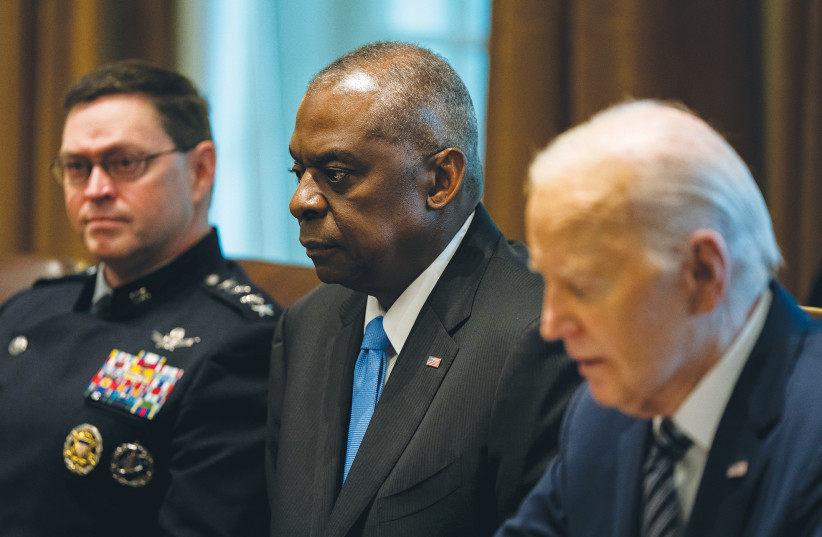Israel's Rafah operation is preventing the US military from conducting air drops, the Pentagon said Thursday. Truck access via ground crossings is still limited and the temporary pier is out of commission for at least a week.
This week, the UN said the amount of humanitarian aid entering Gaza dropped by two-thirds since Israel began its Rafah operation and the slim number of trucks picking up aid is due to heavy movement restrictions imposed on the humanitarian community by Israeli authorities, ongoing Israeli forces airstrikes and recent expansion of military operations.
The Biden administration has long maintained that land routes are the most effective means of aid delivery and that its maritime corridor and airdrops were only meant to supplement ground crossings.
According to the State Department, 325 trucks crossed into Gaza on Wednesday.
The State Department said it's doing everything it can to urge Israel to allow increased assistance to Gaza through as many access points as possible, including calling for consistent access through the Rafah and Kerem Shalom crossings to prevent harm to civilians relying on aid.
Defense Secretary Lloyd Austin spoke with Israeli Defense Minister Yoav Gallant on Wednesday night about the need to sustain increased deliveries of aid and the urgent importance of opening the Rafah Border Crossing for the continued flow of aid, according to the Pentagon.
US diplomacy

In a briefing Thursday, State Department Deputy Spokesperson Vedant Patel was pressed about the pressure the Biden administration is putting on Israel to allow more aid to enter.
The administration is "engaging in that kind of diplomacy" to open as many crossings as possible, Patel said without elaborating on what the specifics of US pressure looks like.
Patel noted there's been an "uptick" in military operations along the Philadelphi Corridor in Rafah but said the department has yet to see a "major military operation" transpire.
Patel declined to categorize the operation "into one box or another" and said the department will continue to monitor conditions. He wouldn't preview or pinpoint what would hypothetically be considered within the threshold of a major military operation.
Pentagon Spokesperson Sabrina Singh said Israel's air operation component is very different from its land operation component.
"There are ways to do targeted strikes of course from the air," she said. "There's too many civilian casualties happening whether it be from ground operations or from the air."
Singh said the Pentagon absolutely wants to see the catastrophic consequences of airstrikes and ground operations addressed.
"We want to see civilians be protected. We want to be able to see them move into safe areas," she added. "But I just want to make sure that we're not conflating two separate things."
When it comes to the ground operation, she said the Pentagon has not seen a "larger scale maneuverability within Rafah."
"We continue to see that it is limited in scope, that they are making sort of steady progress down the corridor," Singh said. "Beyond that, we don't assess it as a large-scale ground operation."
